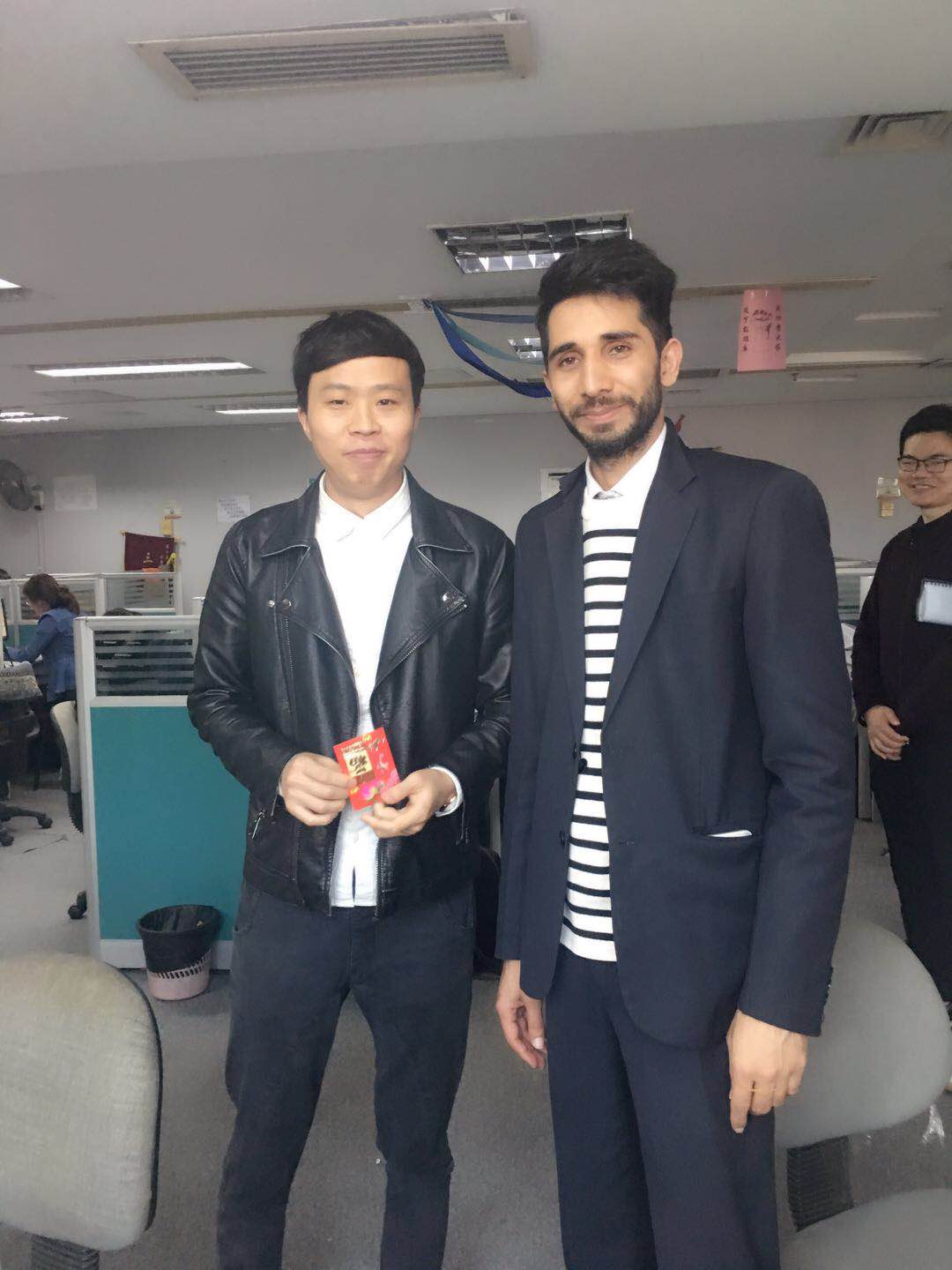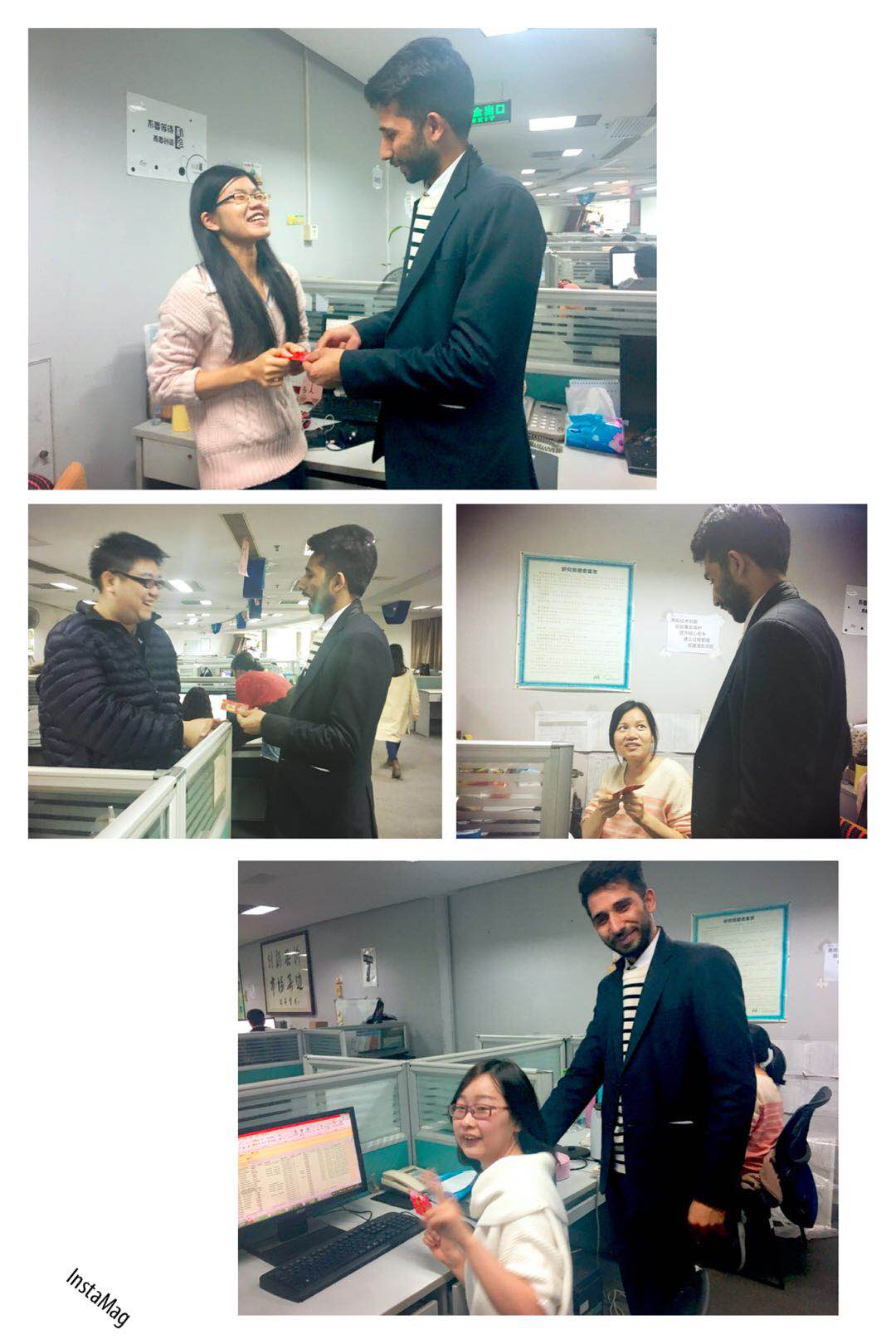We
at Kcomber celebrated the “red envelop” or “lucky money” day for the Chinese
new year. This long tradition contains, that our General Manager Usman Khan
gives every employee a red envelope with “lucky money” inside, wishing good
luck, success, and wealth for the next year.
The
event of giving the red packets is always great fun, as the whole team feels
rewarded for the hard work they put into the business. Besides the red envelops
themselves, there are also snacks and drinks and some time to talk about the
holidays and plans for the next year.

Not
only get our colleges lucky money from the Manager, but they are also
exchanging them with each other to show their friendship. However, only the
married colleges are giving the envelopes to the unmarried ones, as this is
part of the Chinese tradition.
Another
event for the day is the lucky money spending on WeChat, China’s biggest
messenger and multi-tool app. Colleges in our company are in different groups
on WeChat, where one member can send virtual lucky money in the group and the
rest tries to open the packet in the group chat as fast as possible to get the
highest share of the sum.
What are red envelops?
A
red envelope, in Chinese hóngbāo, is a square formed a red envelope. The
traditional red envelopes used in China do often have blessings in form of
golden Chinese characters, wishing the receiver happiness, good luck and
wealth. The term “red packets” or “lucky money” has come into common use,
though these little presents look and function more like envelopes than
packets.

Why
do the envelops have to be red? Chinese people love the colour red and regard
red as the symbol of energy, happiness and good luck. Sending red envelopes is
a way to send good wishes and luck. What’s more, unlike a Western greeting or
gift card, red envelopes that are given at the Chinese New Year don’t have any
specific message and are also not signed by the giving person.
When to give
red envelopes?
Traditionally,
red envelops are given to children by related adults to pass on a year of good
fortune and blessings. However, it is quite common that also the younger
generation passes the lucky money to elders as a blessing of longevity and to
show gratitude. In some regions of China, married couples will also give red
envelopes to their unmarried friends and colleges to transfer some luck.

Regardless
the age, passing on red envelops is a tradition between close family and
friends. Giving
red envelopes to your co-worker’s or higher-up’s children is used for social
networking. It’s just for fun between friends and politeness between
acquaintances.
Red envelops in the
company culture
Employers
are usually giving their employees lucky money at the last working day before
the Chinese New Year holiday. The amount can range from 100 RMB to more than
1,000 RMB. The employer is showing the gratitude towards the employees and
wishing success, health and wealth for the next year.